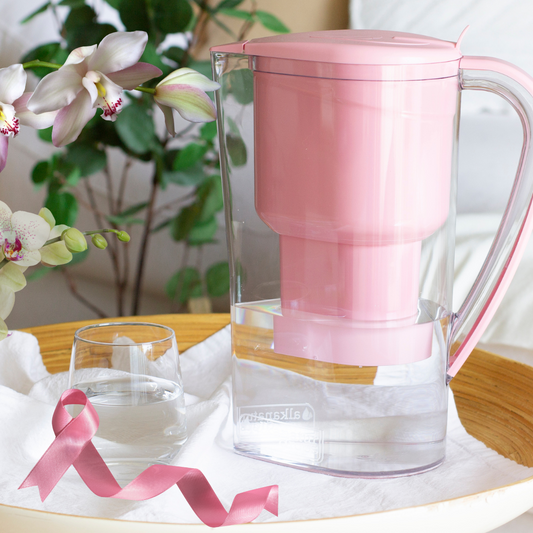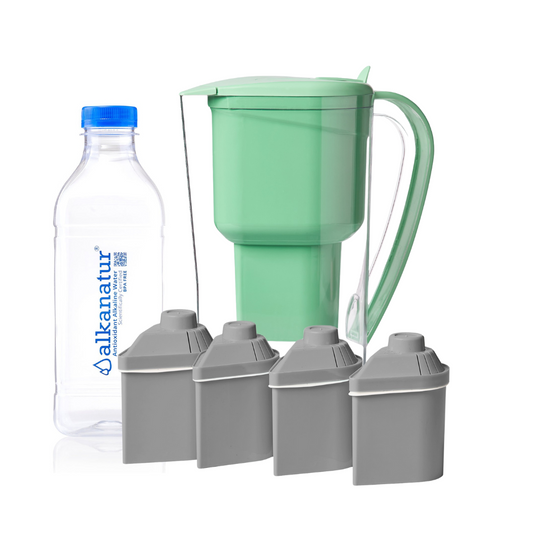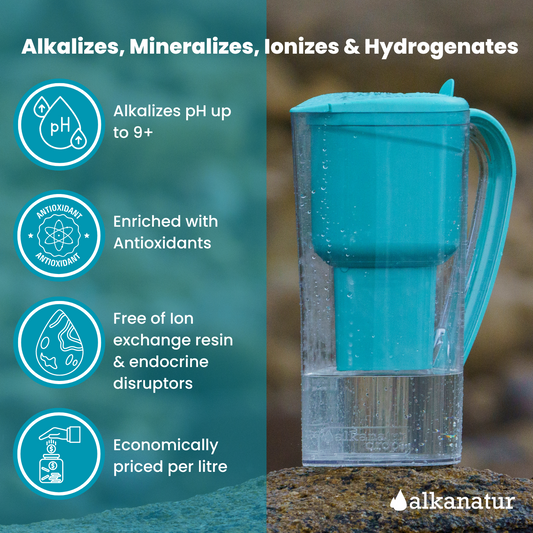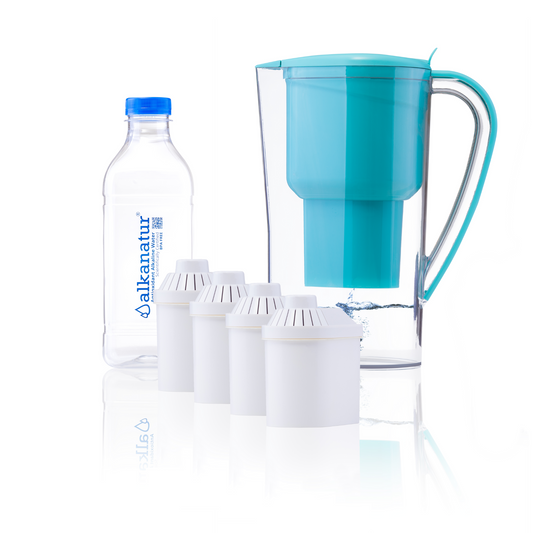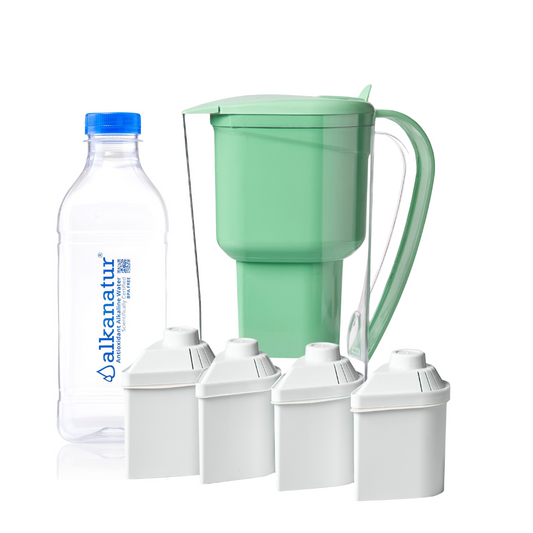The alkaline diet has a great ally to help us alkalize our tissues and although for many it may seem strange, natural salt is one of the best remedies we have in "the alkaline diet" and in an "anticancer diet".
Of course, you have to differentiate between natural ltand refined salt. It is not the same, there are great differences that we must take into account when it comes to eating a healthy, alkaline and anti-cancer diet.
Without it, there can be no life and yet we are recommended on many occasions that we do not consume salt.
Natural and processed salt
Natural salt contains 84 percent sodium chloride and 16 percent natural minerals, including magnesium, siliceous, phosphorus, vanadium ... 84 elements of the periodic table in the same proportion in the that are in our body. When it is of quality it contains all the minerals of the periodic table.
On the other hand, processed salt or what is commonly referred to as "table salt" contains 97.5 percent sodium chloride and the rest are man-made chemicals, such as moisture absorbers and waterborne agents. flow. These are dangerous chemicals such as ferrocyanide and aluminosilicate. Iodine is also added to improve the function of the thyroid which is true that it can improve it but if we exceed the necessary amount it can be very toxic and fluorine, to improve oral health, which we know is a radioactive element, of the most radioactive made and is already well known its action as carcinogenic when the dose we receive is high, salt, water, toothpaste ...
On the other hand, we must bear in mind that the highest consumption of it comes from processed foods that also tend to contain a lot of fructose, related to heart problems, so this factor should be taken into account.
In addition, the table salt is added anti-caking agents such as aluminum hydroxide to prevent caking, when it is known that this mineral is deposited in the nervous system, and can cause diseases such as Alzheimer's.
The water of the primary sea has the same chemical composition as our blood, in fact, it has been used successfully, always filtered, for blood transfusions. In addition, its composition is very similar to lymph and even amniotic fluid, we spend 9 months in a liquid of similar characteristics to seawater.
Drying of salt
In addition to these basic differences in the nutritional content between processed and natural salt, it is necessary to mention the process that involves the drying of it at more than 1,200 degrees Fahrenheit, which also radically alters its chemical structure of it. So, although we undoubtedly need it to achieve optimum health, it is important to choose the type of salt we are going to feed on. We need it, yes, but natural, without additives.
No less than 1.6 million deaths per year are due to excessive sodium consumption. Specifically, "one in 10 deaths due to cardiovascular causes can be attributed to a sodium intake of more than 2 grams per day," says the authors of an investigation in the pages of the New England Journal of Medicine that was published in 2014.
This includes the consumption of sodium from commercial table salt, as well as the sodium found in processed foods, which unfortunately is a lot. It is also this mineral responsible for the retention of fluid and with it hypertension that occurs in many patients, as we know that 1 gram of sodium retains about 13 grams of water, water that is extracted from the cell interior, leading the cells are dehydrated and many of them die.
Sodium and potassium
The most important thing when consuming salt is that it contains an appropriate relation between Sodium and Potassium and processed salt contains nothing of potassium. We know that our ancestors consumed about 11,000 mg of potassium per day and about 700 mg of sodium. This is equivalent to almost 16 times more potassium than sodium. If we compare that with Western Food, where an average of 2,500 mg of potassium is consumed daily (the RDA is 4,700 mg/day), along with 3,600 mg of sodium ... If you take a diet based on processed foods, you have practically guaranteed that the relationship between potassium and sodium is reversed.
Conclusion
Therefore my recommendation when choosing the best salt, is that you use seawater for your food, salt mountain or mine, salt millions of years ago came to the oceans, such as salt from the Himalayas or unrefined sea salt of quality, the fat salt. Paradoxically, most people have a lack of the minerals that this highly alkalizing natural salt gives us, which we will discuss in more detail in another article.
Alkanatur Alkaline Water Filter Pitcher with Magnesium & Antioxidants – Alkanatur North America



